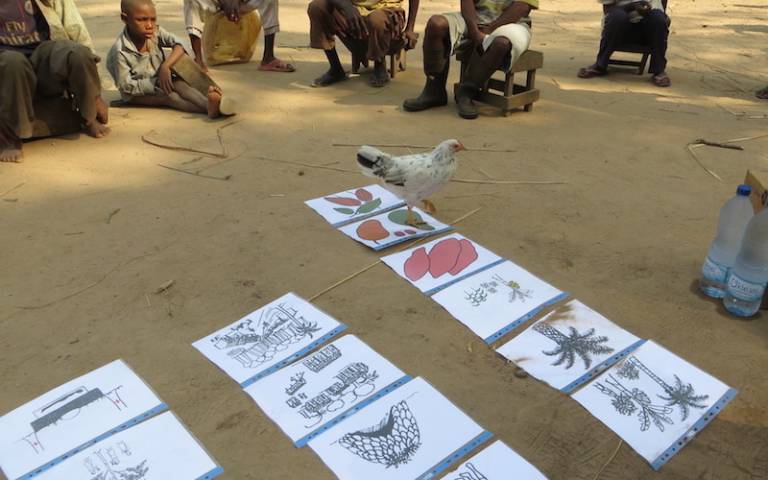Citizen science that helps farmers and conserves wildlife
Software developed by UCL’s Extreme Citizen Science (ExCiteS) research group enables people with little or no literacy to collect and analyse data about their environment, helping them to monitor illegal poaching, wildlife, and other resources that are important to them.

Sapelli software was developed by Professor Muki Haklay (UCL Geography) and Dr Jerome Lewis (UCL Anthropology) through a collaboration between computer scientists, geographers, anthropologists, human-computer interaction experts, and communities in Cameroon, Congo-Brazzaville and Brazil, as well as people with low literacy in the UK. In the Congo basin for example, it enabled forest people to monitor illegal logging and improve forest governance and has been adopted by forestry organisations in the region. The communities involved also make important decisions on how the information should be shared.
It is integrated into a careful participatory process that follows the highest ethical standards of establishing a Free, Prior Informed Consent (FPIC) and a community protocol to ensure that the process is inclusive and takes care of cultural sensitivities and context. The process in which the software is being deployed allows communities to decide what information will be collected and which elements will be included. This is done by using a mixture of paper and digital prototyping to ensure engagement, and to allow anthropologists to use the software successfully.
The development of Sapelli builds on earlier work by Dr Jerome Lewis and Dr Luke Freeman, and as a result of the software two professional organisations for forestry companies in the Congo Basin have adopted FPIC principles for their members.
The software has also supported the documentation of indigenous plant knowledge and issues surrounding sustainability among herders and farmers in Kenya. Since its development, Sapelli has been used across the world and is now integrated in illegal poaching monitoring by the Zoological Society of London.
Links
- Sapelli website
- Professor Muki Haklay’s academic profile
- Dr Jerome Lewis’ academic profile
- UCL’s Extreme Citizen Science (ExCiteS) research group
- UCL ExCiteS blo
- UCL Innovation & Enterprise
Image
- Credit: Michalis Vitos, Source: UCL ExCiteS
 Close
Close

